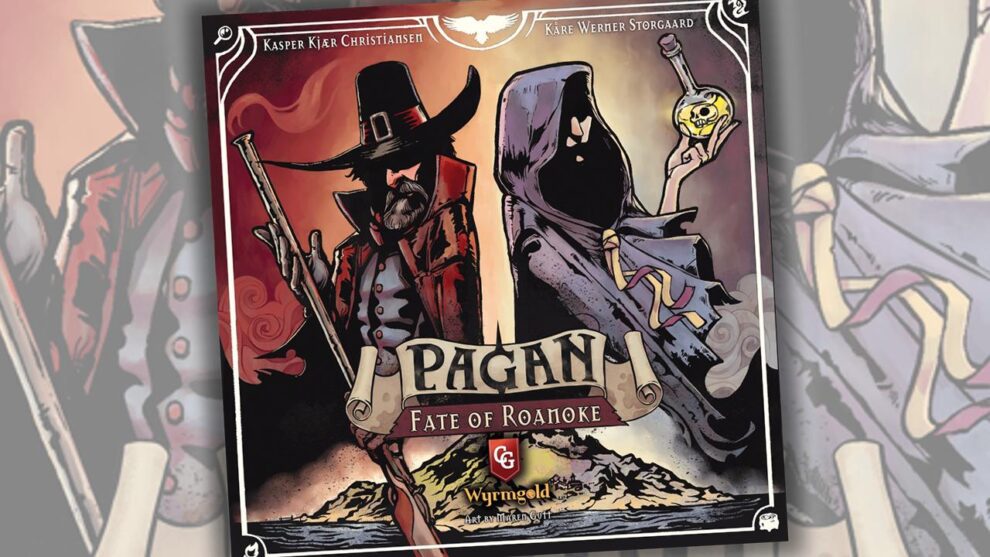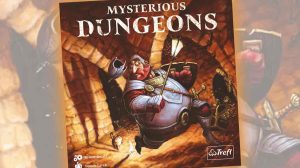Disclosure: Meeple Mountain received a free copy of this product in exchange for an honest, unbiased review. This review is not intended to be an endorsement.
Updated: December 6, 2024
In my original review of Pagan: Fate of Roanoke, I talked at length about feeling as though I, and the two or three other people who read the rulebook after me, had missed a rule. It seemed far too arduous a process to get tokens out on the board, with games grinding along at a horrendous tempo as a result. I read the rulebook all the way through three different times, and two or three other people read through it in its entirety. None of us were able to identify a missed rule.
Subsequent conversations with other people who’ve played and enjoyed the game gave me the answer: we had indeed missed a rule. Every time you visit a villager, tokens are distributed to other villagers. I, and everyone I played with, took this to mean that tokens are taken from the visited villager and moved around. It turns out those tokens are taken from the supply and distributed amongst other villagers. Because this rule would make an enormous difference in the experience of the game, and because I will not have the opportunity to revisit the game with the corrected rule in effect, I do not feel comfortable leaving my review as it existed.
If you play Pagan, please note that the distribution of tokens described on page 16 of the rulebook involves taking tokens from the supply, not from one card to another. The rulebook does not explicitly state that those tokens come from the supply, and it makes an enormous difference to the pace of play.












Before reviewing the game after 1 play, try the recommended starter Scenario that comes with the game to help you understand how the game is played.
Hey Mike! I did, in fact, play the game three and a half times prior to writing this review. Though there are certainly cases when one play feels sufficient, I generally make a point of playing games at a minimum of three times before reviewing them. Especially if it’s a design like Pagan, when I feel as though I have missed something.